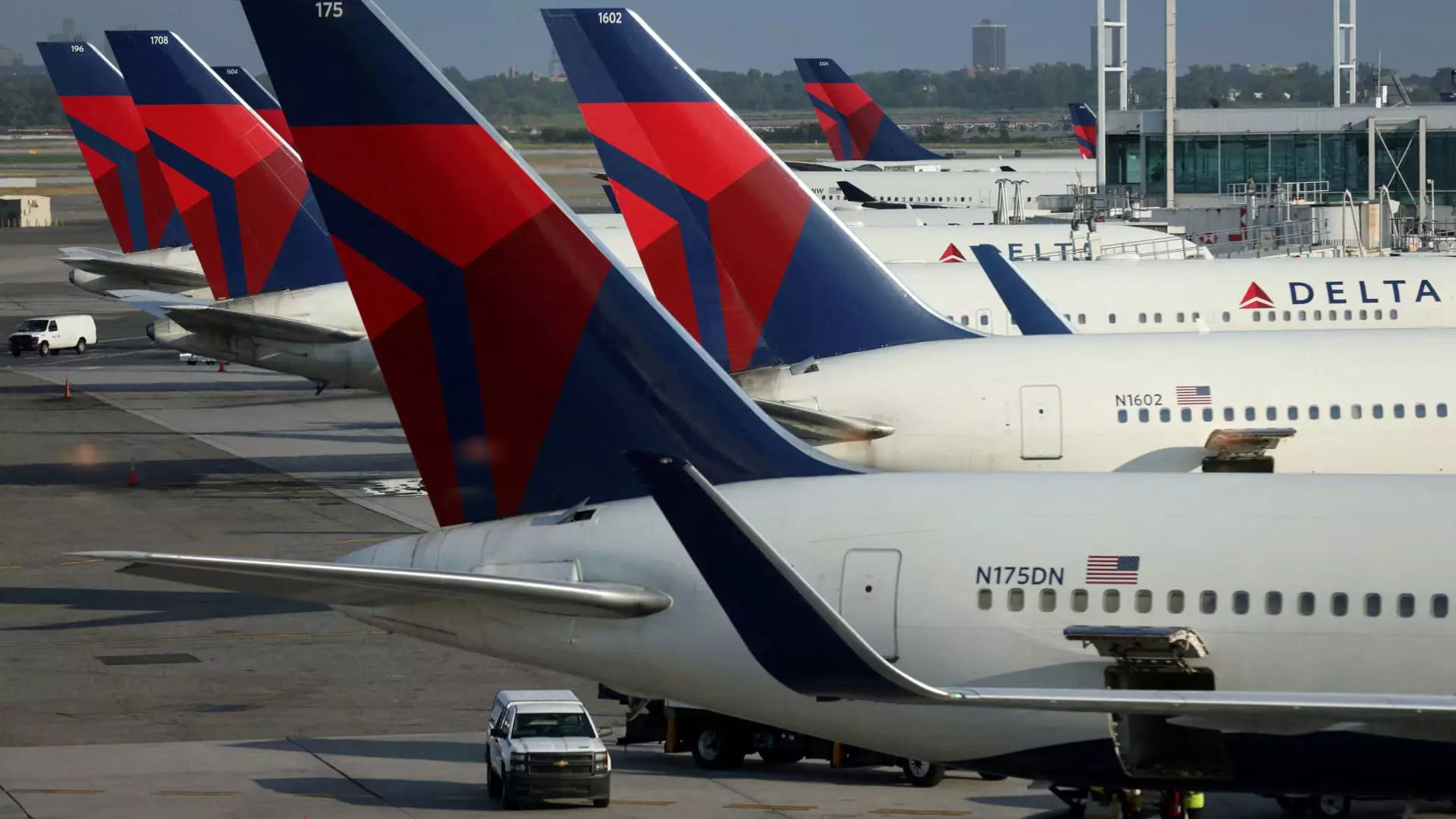In a significant move reflecting the interconnectedness of technology and airline operations, Delta Air Lines has instituted legal proceedings against CrowdStrike, a prominent cybersecurity firm. The lawsuit, filed in Georgia, centers around accusations of breach of contract and negligence following a major software outage in July. This incident resulted in the unprecedented grounding of flights, leading to over 7,000 cancellations and an estimated revenue loss of $380 million along with additional expenses amounting to $170 million.
What makes this case particularly compelling is the device failure associated with a flawed software update that was supposed to enhance security yet instead contributed to a widespread failure across Delta’s operations. The disaster appears to stem from vulnerabilities within Windows operating systems, highlighting the risks inherent in relying on third-party software providers.
Delta’s claim is rooted in the assertion that CrowdStrike’s Falcon software was inadequately tested before its deployment. The airline contends that if the software update had undergone appropriate testing, it could have identified potential failures, thus avoiding the ensuing chaos. This negligence points to a broader issue in the tech industry— negligence regarding rigorous testing protocols can lead to drastic operational disruptions, particularly for businesses that operate on the scale of a major airline.
The fact that Delta had disabled automatic updates from CrowdStrike adds another layer of complexity to the situation. Despite these precautions, the problematic update managed to reach Delta’s systems. This raises questions about the security protocols and controls established by both Delta and CrowdStrike. By effectively creating an unauthorized ‘backdoor’ into Delta’s systems, the incident showcases critical vulnerabilities that can arise when software integrity is compromised.
In the aftermath of the outage, Delta enlisted the services of renowned attorney David Boies, indicating the serious nature of its claims and the desire to pursue significant financial restitution. The airline’s intent to not only recover losses but seek punitive damages raises interesting discussions about accountability in technology partnerships. Delta’s CEO Ed Bastian emphasized the dire consequences of CrowdStrike’s alleged recklessness, underscoring the argument that corporate negligence should come with substantial repercussions.
CrowdStrike has responded with an apology but has also stated its commitment to reevaluating its practices to prevent similar occurrences in the future. This responsibility reflects a growing trend in the technology sector where companies are increasingly held accountable for their actions and the reliability of their software.
The incident between Delta and CrowdStrike serves as an urgent reminder of the critical importance of software reliability in industries that depend heavily on technology. As the airline navigates the aftermath of this disruption, other organizations should take heed of the lessons learned. The necessity for robust testing, cautious deployment protocols, and transparent communication between software vendors and their clients cannot be overstated. As the legal proceedings unfold, the outcome could potentially set a precedent that impacts the future dynamics of corporate liability in the tech industry, particularly as it interfaces with high-stakes sectors like aviation.


Leave a Reply